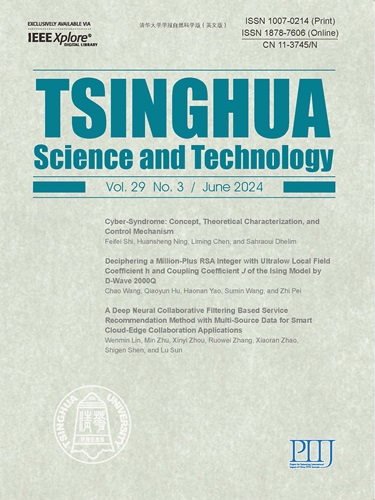Passive Metasurface-Based Low Earth Orbit Ground Station Design
IF 6.6
1区 计算机科学
Q1 Multidisciplinary
引用次数: 0
Abstract
Low Earth Orbit (LEO) satellite communication is vital for wireless systems. The main challenges in designing LEO satellite ground stations include increasing the input signal strength to counteract severe path loss, and adaptively steering the direction of the output signal to accommodate the continuous movement of LEO satellites. To overcome these challenges, we present a novel transceiver system, referred to as MetaLEO. This system integrates a passive metasurface with a small phased array, enabling powerful focusing and adaptive signal steering. By harnessing the metasurface's robust wavefront manipulation capabilities and the programmability of phased arrays, MetaLEO offers an efficient and cost-effective solution that supports both uplink and downlink bands. Specifically, we devise a joint optimization model specifically to obtain the optimal uplink codebook for phased array antennas and metasurface phase profile, which enables electronic steering. In a similar manner, we establish the downlink metasurface phase profile to enhance focusing and signal reception. MetaLEO's efficacy is evaluated via theoretical analysis, simulations, and experiments. Our prototype includes a single metasurface with 21×21 uplink and 22×22 downlink elements, and a 1×4 antenna array for receiving and transmitting. Experimental results show signal strength improvements of 8.32 dB (uplink) and 16.57 dB (downlink).基于被动元表面的低地球轨道地面站设计
低地轨道(LEO)卫星通信对无线系统至关重要。设计低地轨道卫星地面站的主要挑战包括增加输入信号强度以抵消严重的路径损耗,以及自适应地引导输出信号的方向以适应低地轨道卫星的持续移动。为了克服这些挑战,我们提出了一种新型收发器系统,称为 MetaLEO。该系统集成了一个无源元面和一个小型相控阵,可实现强大的聚焦和自适应信号转向。通过利用元表面强大的波前操纵能力和相控阵列的可编程性,MetaLEO 提供了一种高效、经济的解决方案,同时支持上行和下行频段。具体来说,我们设计了一个联合优化模型,专门用于获取相控阵天线和元表面相位轮廓的最佳上行链路编码本,从而实现电子转向。同样,我们还建立了下行链路元表面相位轮廓,以加强聚焦和信号接收。我们通过理论分析、模拟和实验对 MetaLEO 的功效进行了评估。我们的原型包括一个具有 21×21 上行链路元素和 22×22 下行链路元素的单元面,以及一个用于接收和发射的 1×4 天线阵列。实验结果表明,信号强度分别提高了 8.32 dB(上行链路)和 16.57 dB(下行链路)。
本文章由计算机程序翻译,如有差异,请以英文原文为准。
求助全文
约1分钟内获得全文
求助全文
来源期刊

Tsinghua Science and Technology
COMPUTER SCIENCE, INFORMATION SYSTEMSCOMPU-COMPUTER SCIENCE, SOFTWARE ENGINEERING
CiteScore
10.20
自引率
10.60%
发文量
2340
期刊介绍:
Tsinghua Science and Technology (Tsinghua Sci Technol) started publication in 1996. It is an international academic journal sponsored by Tsinghua University and is published bimonthly. This journal aims at presenting the up-to-date scientific achievements in computer science, electronic engineering, and other IT fields. Contributions all over the world are welcome.
 求助内容:
求助内容: 应助结果提醒方式:
应助结果提醒方式:


